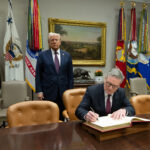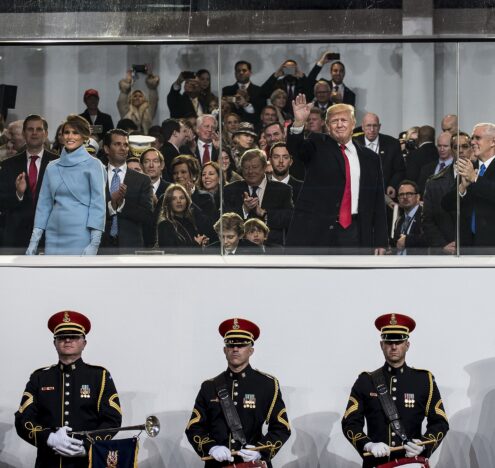This analysis was featured in Critical State, a weekly newsletter from Inkstick Media and The World. Subscribe here.
On Feb. 21, three days before Russia launched its long-telegraphed invasion of the whole of Ukraine, Vladimir Putin said in a televised address that Ukraine as a modern entity traced its origin back to Russia’s 1917 revolution, and specifically the actions of Lenin. This was not, exactly, a critique of Lenin, as in the same statement Putin both condemned Ukraine for removing Lenin monuments and promised a greater decommunistification. No one goes to war over a statue who wasn’t already planning to go to war.
What Putin’s speech suggests is not that post-Soviet Russia was going to war for the legacy of communism, but because what Putin found praiseworthy in the lost USSR was its commitment to the territorial integrity of the Russian empire, won through blood in the Civil War and again in World War II. Russia’s wars of the 1990s and especially the 2000s have been, with the notable exception of a client-support mission in Syria, largely wars of restoring territorial integrity, of quelling independence movements, and of constraining the autonomy of constituent parts.
No one goes to war over a statue who wasn’t already planning to go to war.
In “The Postcolonial Moment in Russia’s War Against Ukraine,” Maria Mälksoo calls on the field of international relations to take seriously Russian wars as Imperial Wars. And, in so doing, it provides a framework to understand Ukraine’s war for survival as a postcolonial war.
“Ukraine is also among the most flagrantly neglected cases of Soviet colonialism due to the allegedly insufficient applicability of the label “postcolonial” to the former Soviet/Russian imperial space,” writes Mälksoo. One reason for this, Mälksoo continues, could include the limitation of colonial studies focused on European-imposed racial hierarchies of overseas colonies. Another is that the independent nations of Eastern Europe, who declared independence from the Russian Empire in 1917 only to lose and regain sovereignty between 1945 and 1991, are seen as distinct from national populations held subject within Russia.
If studies of Ukraine in the past have failed to place it in Eastern Europe, or have felt that Ukraine’s history is a subset of Russia’s history, a post-colonial understanding of the present war instead offers a way to understand the war as driven by both Russian imperialism against Ukrainian national independence. This is a framework that Mälksoo deliberately sets against the limitations of “spheres of influence” or “realism,” neither of which can adequately explain why Russia picked a war, the domestic concerns driving it, or why Ukraine has fought against it so intensely.
Through this lens, the war is not just about the relative power of two countries, but about Putin’s Russia seeking an answer to the collapse of Soviet empire in 1991 by rebuilding that empire, leaning on what Mälksoo identifies as “heroic myths of its Second World War/Great Patriotic War-experience as the saviour of Europe.”
While the war is fought in Ukraine, the ideological terrain of the conflict is Russian identity as an imperial power, the part of the Tsarist legacy that Lenin kept and Putin in turn has worked to retain.
Concludes Mälksoo, “The least the onlookers can do is to learn to empathize better with the perspective of the murdered, and not of the murderers – politically, analytically and disciplinarily.”



















